Text

reaper man from 2023! fifth year
36 notes
·
View notes
Text

the best scene in reaper man in my opinion
#you can really see the slow syrupy qualiry of discworld light here#reaper man#discworld death#bill door#discworld#gnu terry pratchett
500 notes
·
View notes
Text
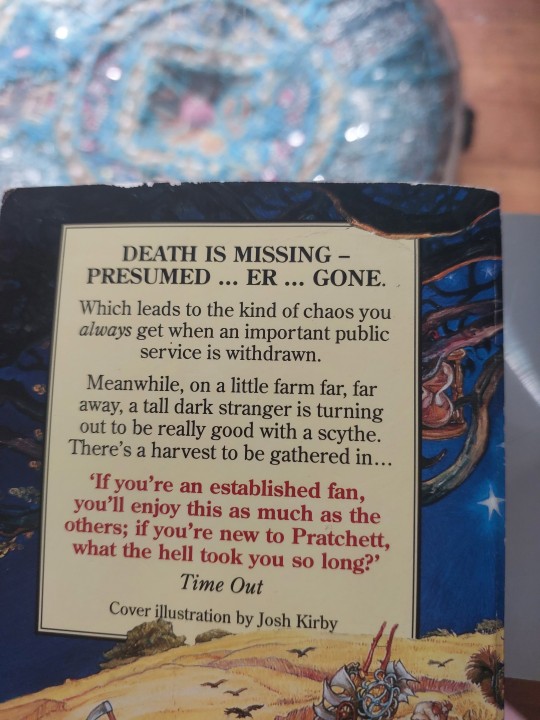
I love how they don't even attempt to address the whole parasitic city thing.
#the parasitic city is impossible to explain in any less time than was spent on it in the book#it simply cannot be conveyed in a blurb#reaper man#discworld#gnu terry pratchett
355 notes
·
View notes
Text

The child stared distantly at the landscape for a while and then said, “I’ve got new socks.”
YES?
“You can look, if you like.” A grubby foot was extended for inspection.
WELL, WELL. FANCY THAT. NEW SOCKS.
“My mum knitted them out of sheep.”
MY WORD.
- Reaper Man, Sir Terry Pratchett
3K notes
·
View notes
Text
I liked Mort, but I absolutely loved Reaper Man. It felt like two separate books, Death on the farm and the wizards fighting the shopping carts, but it was hilarious and charming and delightfully bizarre and moving. I mean that, I was moved. I was moved by Bill Door and Miss Flitworth, I was moved by Windle Poons and the Fresh Starters, I was slightly perturbed by the implications of Ludmilla and Lupine's fledgling relationship, but all in all I was moved by how sincere and hopeful the story was. Terry Pratchett apparently got a lot of letters from terminally ill fans who said they hoped Death was just like he was in the books, and I get it now. This Death is fair, he is just, he is more human than he cares to admit, and I'm excited to pick up Soul Music tomorrow to continue his storyline. It has been many years since I fell in love with a book, and I can count my favorites which make a point of rereading on one hand, but Reaper Man may have just joined the list.
25 notes
·
View notes
Text

#poor windle#humouring their bullshit even in death#windle poons#mustrum ridcully#the bursar#reaper man#discworld#gnu terry pratchett
99 notes
·
View notes
Text
The first time I read Reaper Man I very sincerely thought I was reading too deep into Death and Renata Flitworth’s relationship, and I kept my opinions to myself because I thought people would think I was weird for saying that Death loved Renata.
And benefit of hindsight. The last thing Death does in the book is present Renata with the biggest, cheesiest, most disgustingly opulently romantic display he could possibly make, which is the most Deathly thing he could do. Is it romantic love? Who’s to say. Is it how Death would show someone he loved them? 1000%
#i really enjoy the dynamic they have#their relationship is ambiguous#but it's only love that can get someone to buy a woman flowers and chocolates and diamonds and take her dancing#and reunite her with her fiance one final time so that they can face death together#it makes me cry every time I read it#discworld#discworld death#mrs flitworth#reaper man#gnu terry pratchett
419 notes
·
View notes
Text

1K notes
·
View notes
Text
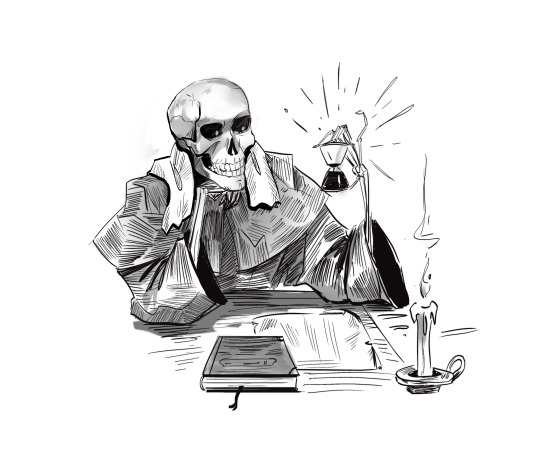
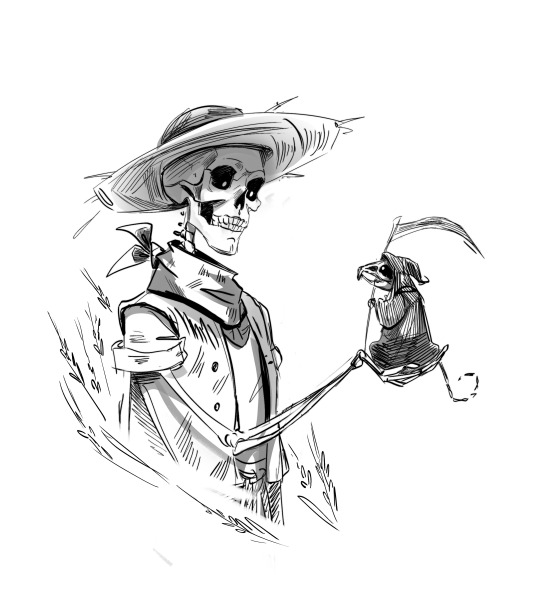
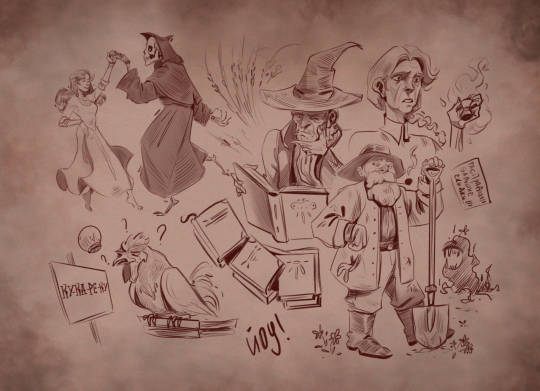
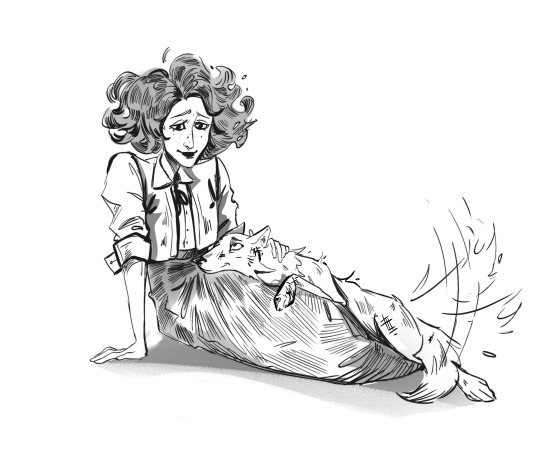
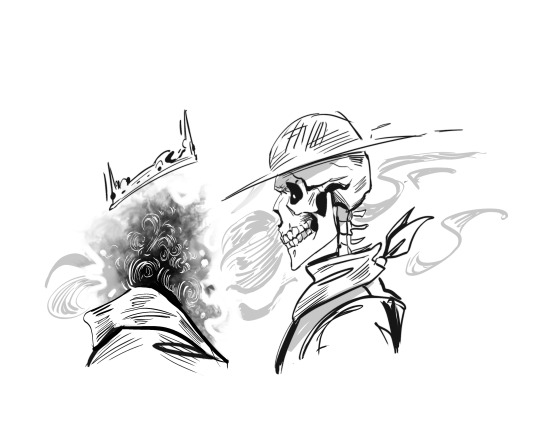
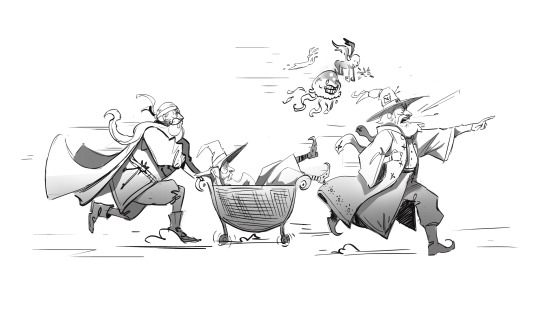
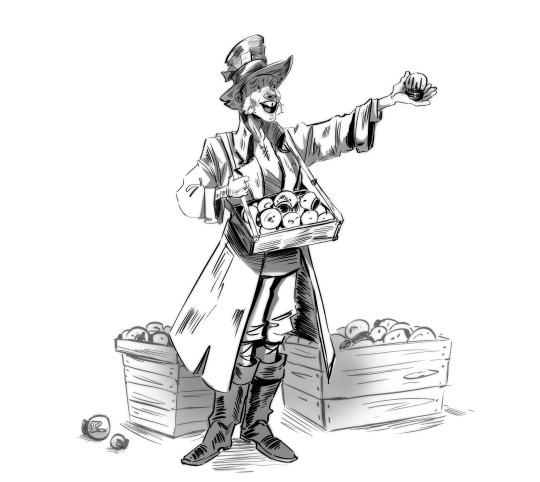
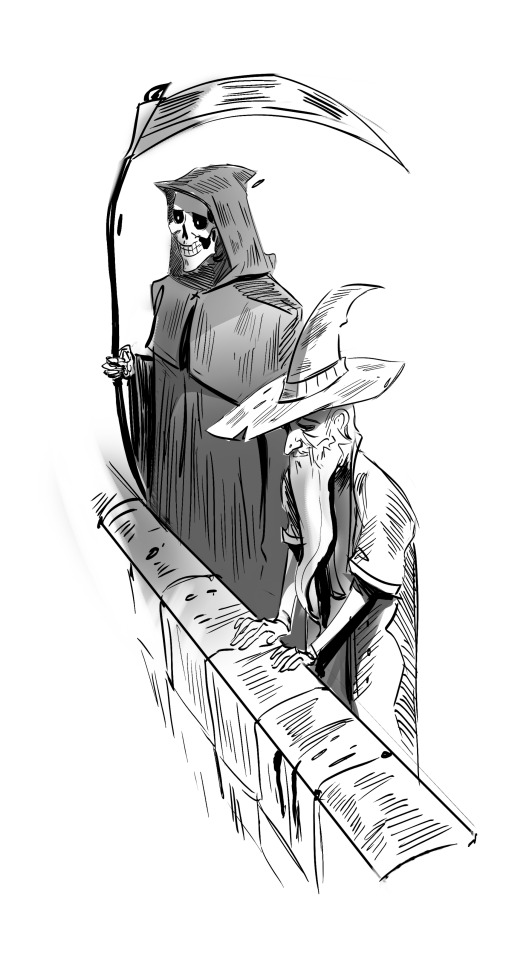
2K notes
·
View notes
Text
Made my dad a lord of the rings themed card for father's day (I got no money to buy him a gift)



Did just realise that by making Sauron the first page, I may have indirectly called him a tyrant. I just thought it looked cool💀💀
63 notes
·
View notes
Text

"Éowyn, Éowyn, White Lady of Rohan, in this hour I do not believe that any darkness will endure!"
1K notes
·
View notes
Text
Sisko isn't given enough shit for nepotism promoting Ezri to station's counselour. It's doing a disservice both to her and his staff. Your people are going through a war, dude, and the best you can do is one unexperienced person without all their training who also has a conflict of interests AND reminds them of their friend they tragically lost. Great job 10/10
#she's not even finished her training and suddenly she's the highest-ranking counsellor on a space station in the middle of a devastating war#with no-one to advise her except her best friend/superior officer or the voices in her head (also untrained)#and sisko immediatedly throws her into the deep end to “fix” garak#(wallpaper over his trauma so he can get back to work)#and then gets cross with her when she decides she's unqualified and can't do her job and needs to leave#like she's right!!!!#she needs supervision!!#can she even contact more experienced counsellors through subspace or are they too far away??#no wonder she's not very good at her job!#like obviously this was bad for the whole crew#because they were all ridiculously mentally ill and needed treatment from someone who knew what they were doing#but we cannot overlook how awful it had to have been for ezri too
36 notes
·
View notes
Text
There’s also that moment in Penumbra when Ezri and Worf are bickering and Ezri’s trying to get a communication signal out and says “I bet Jadzia would have been able to do it.” And it’s a comment very specific to her dynamic with Worf, which is very premised on the baggage surrounding Jadzia (and a direct response to him comparing her to Jadzia). But I do think it indicates a more general underlying source of insecurity that her conflict with and complicated tangle of emotions surrounding Worf enable her to express.
It’s very plausible to me that, much like Jadzia struggled to accommodate Curzon, Jadzia is the host whose legacy hangs over Ezri the most, given that she’s stepped into Jadzia’s life and settled among people who knew her intimately and are grieving her death. (Especially since on multiple occasions, she gets upset at being compared to Jadzia, but also has trouble separating her feelings and priorities from Jadzia's.)
I think that that’s a really fascinating and neglected aspect of Ezri’s character - how the people in Jadzia’s life would respond to her and come to accept her. It’s really only explored in depth with Worf, and that’s after she’s been incorporated into the main cast otherwise. Having multiple episodes dedicated to the crew having to acclimatize to her presence would have been better than the cursory nod to it that we got in Afterimage, imo; it feels particularly underdeveloped with Kira, who seems quite unsettled by Ezri’s presence initially, and a more thorough exploration of it with Bashir would have really fleshed out that relationship too. And even though Sisko’s already been through a host switch - in the early episodes it’s noted that he’s not always sure how to relate to Jadzia - Jadzia’s death was very traumatic and guilt-inducing for him in a way that Curzon’s wasn’t, which could have complicated the dynamic with Ezri far more than shown on screen.
That said, I do think there’s something interesting in the contrast between how readily the other characters end up accepting Ezri and the hints that she still struggles internally with filling Jadzia’s shoes. Because they do close ranks around her very quickly, in a way that’s rather sweet. As early as Take Me Out to the Holosuite she’s hanging out with Bashir and O’Brien and is very much part of the team, she’s usually present in scenes where the senior officers are hanging out in groups, we get moments with her chatting animatedly with Kira and Bashir at Quark’s, and of Quark going out of his way to be kind to her.
But the degree to which she actually opens up to the other characters is questionable. She does quite a bit of processing with Sisko in Afterimage, though with some amount of friction, and she develops eventual camaraderie with Worf. And there are other moments, like when she tells Bashir about struggling with violent thoughts in Field of Fire, or tells O’Brien about how she blames herself for what happens to her brother. But I do think that, for all that she’s sweet and pro-social, she does have a tendency to remain closed off. And in the latter two examples, she resists Bashir and O’Brien’s attempts to comfort her, and retreats back into herself. Field of Fire is mostly about her struggling with an internal component of herself, and keeping that struggle a secret from everybody else.
Some of this can be attributed to writing decisions surrounding Ezri’s character, but when taken at face value, it does point to a compelling and imo realistic dynamic. I think Ezri, for all that she does make a concerted effort to connect with people and has a habit of talking extensively about herself, is also, on another level, hard to reach and know. And I think she specifically tends to internalize negative emotions until they bubble over (in a way entirely consistent with her emotionally abusive upbringing). And on DS9 in particular, I do feel as though that habit is linked to a lingering uncertainty as to her place there in the wake of Jadzia’s death.
It’s a complicated dynamic, because her relationships with Sisko, and Worf, and Kira, and Bashir, and Quark (the people Jadzia was closest to) are all obviously very meaningful to her, and there are indications in dialogue and action that she’s come to value those friendships on her own terms, rather than just through Jadzia’s memories. And the entire main cast comes to embrace her as well. But… I think diegetically speaking, some of the gaps in her writing give the impression that she doesn’t necessarily feel fully secure in their affection for her.
And, idk, that dynamic of being part of a group or community who loves and cares about you a lot, but where you still can’t shake the feeling that they don’t fully understand or accept you in the way you need… well, I find that very resonant.
11 notes
·
View notes
Text
"came back wrong" but they didn't want to come back. They wanted to stay dead, damn it! And now they gotta figure out how to die again. It was their f------- time*!! And everybody's freaked out cause they're DEAD and they're trying to kill them all over again but they're just GRUMPY as hell that they're not in DEATH'S sweet embrace. And they're trying to die for God's sake, won't people stop BURYING them?
*little known fact: --- are pronounced, it's just that nobody knows how.
#poor windle poons#being an unwilling zombie is bad enough without the eejits from unseen university running around#reaper man#discworld#terry pratchett
7 notes
·
View notes
Text
Okay, Cardassia, Soviet Union, 90's cultural relevance, here we go.
*deep breath*
The late 80's into the 90's was a super weird time, in general, but it was especially weird for the Soviet Union/Russia, and it all happened quite publicly, globally speaking. This absolutely and clearly influenced the creation of the Cardassians, and even more so their arc throughout Deep Space Nine. First, we gotta go back further for some context though, come on, take my hand.
Ah, here we are.
Right, so the primary writers for DS9 were mostly in their 30s and 40s when the show started (Ira Steven Behr was 39 for example), which means the looming threat of the Red Menace was omnipresent in the American psyche their whole lives. I cannot emphasize enough how much space the USSR took up, rent free, in the minds of Americans throughout the many decades of the Cold War.
Every spy novel, comic book series, and action movie had to have a Russian-accented baddie for the noble American hero to fight against. A quick aside, this is why Chekov being on the bridge in TOS was a Big Deal. Roddenberry was basically saying, "Someday all humanity will be working together in harmony, yes, even the Russians." Anyway, my point is, Russian villains saturated the media that the DS9 writers would have grown up with.
While the fiction was popping off, the real stories of life in the USSR from defectors were being consistently drip-fed to the outside world. Stories of dramatic show trials, where the guilt was already determined and the whole trial was just a display to sway public opinion. Stories of prodigious propaganda on every street corner, in every newspaper, and on every TV and radio. Stories of forced labor in gulags in the many USSR occupied territories. And oh yes, let's not forget the NUMEROUS stories of the Secret Police, the most infamous of which was the Committee for State Security, the dreaded and powerful KGB. A spy agency, full of sleeper agents behind enemy lines, experts in deception, espionage and assassination. Hm, now, where have we seen such things?





Also, let us be frank, we have the Romulan empire, the Klingon empire, the Terran empire, lots of empires, but Cardassia and its occupied territories are the Cardassian UNION? C'mon.
Okay, but then we get to the 90's and DS9, and this is where it gets REALLY juicy, so bear with me here.
In January of 1991, the Next Generation episode "The Wounded" introduced us to the Cardassians, and "Ensign Ro" in October set up the Bajoran occupation. While they didn't have the accents, they had a few likenesses to the American idea of Russian authoritarianism, a brutal military, religious suppression, gulag labor camps, strange torture methods, but it was still vague at best.
However, in December of that same year the USSR collapsed, the Soviet Union was no more, and it was WIDELY televised. The Western world watched on in various degrees of shock, joy, and trepidation as the seemingly invincible Soviet Union broke apart. The formerly occupied regions declared their independence, and the Russian central command (seemingly) withdrew all of their forces and government operatives quite suddenly back to Moscow.
Half a year later, in the Summer of 1992, Deep Space Nine began pre-production, and the Cardassians were chosen as the primary initial antagonists and the abandonment of Bajor as our backdrop. Through DS9 Cardassians gained a notable spy agency, the Obsidian Order, and a reputation of beuracratic record keeping and efficiency (the USSR was famously meticulous in its record keeping and "at least the trains/shuttles ran on time"). We explored their kangaroo courts, the friction between their military leadership and their civilian leadership (Stalin taking over from Lenin, anybody?), the consequences of rapid withdrawal of a controlling force, and the effects of economic instability on a super power. Mere months after the real collapse and withdrawal of the USSR, the DS9 writers choose to make the collapse and withdrawal of an authoritarian Union the driving plot point of their new show?

The writers, as they developed the show, were clearly exploring the themes that were playing out in the world around them. To the folks watching at home these would have been immediately recognizable, something that could be connected to contemporary events, as well as the lifetime of USSR figures in media that they were accustomed to. It was a familiar string to pull on and draw the audience in.
Ahem, so as you can see, the depiction of the Cardassian Union not only parallels the Soviet Union, but was uniquely relevant to an audience in the 90's that was watching the collapse of the USSR in real time on the nightly news.
However, it wasn't all the standard anti-soviet themes one would expect, which is how we ended up with Garak. The ways the writers used him thematically were so fascinating and so uniquely Star Trek. He LOVES his planet and his people, he's almost a spiritual successor to Chekov in that way: blindly loving of his home, claiming it is the best in all things. In the face of decades of anti-soviet media Garak was depicted as a morally-gray spy, yes, but in classic Star Trek fashion also fiercely loyal, noble, loving and multi-faceted. An enemy that can be made a friend if one tries hard enough, as long as there is a kernel of "humanity" within you both.
Star Trek hopecore is present even in the darkest of the TNG sibling shows.
210 notes
·
View notes
Text
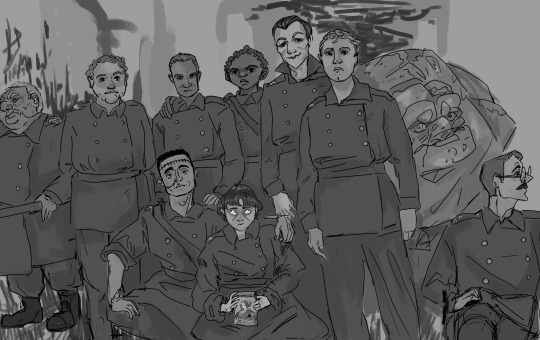
There was an old, very old Borogravian song with more Zs and Vs in it than any lowlander could pronounce. It was called ‘Plogviehze!’ It meant ‘The Sun Has Risen! Let’s Make War!’ You needed a special kind of history to get all that in one word.
511 notes
·
View notes
Text
I love buffy summers so so much. She’s so perfect and so incredibly complex and flawed.
She loves her sister more than anything in the world. She makes terrible puns. She wasn’t able to kill her soulless ex-boyfriend when she first had the chance. She blames herself for his murder of her father figure’s girlfriend. She wears bedazzled beanies while hunting demons. She always believes children when they tell her about the monsters under their beds.
She’s patrolled in a halterneck many times. She has a multitude of cross necklaces which she switches out depending on her outfit. Sometimes she fears she’s just a glorified killer. She was murdered when she was sixteen and died to save the world when she was twenty. When her mother died she waited until she was alone to do the dishes and let the running water cover the sound of her cries. She’s terrible at undercover.
She wears hoop earrings while fighting for her life. She was reduced to a catatonic state when she believed that she had failed to protect her sister. She’s isolated herself from anyone she believed cared about her more than once. She’s suffered from severe ptsd and depression. She critiques old kung fu movies from a fight choreography standpoint.
She is an expert in denial and suppression. She came back wrong - or at least she thought she did. She desperately tries to keep to a code of honour even when everything she believes about right and wrong is constantly shifting around her. She bears the weight of the world on her shoulders. She sleeps with a stuffed pig named Mr Gordo. She’s feared that her duty as the slayer would turn her to stone, that above all else she would lose her ability to love.
She loves more fiercely than anyone in the world.
2K notes
·
View notes